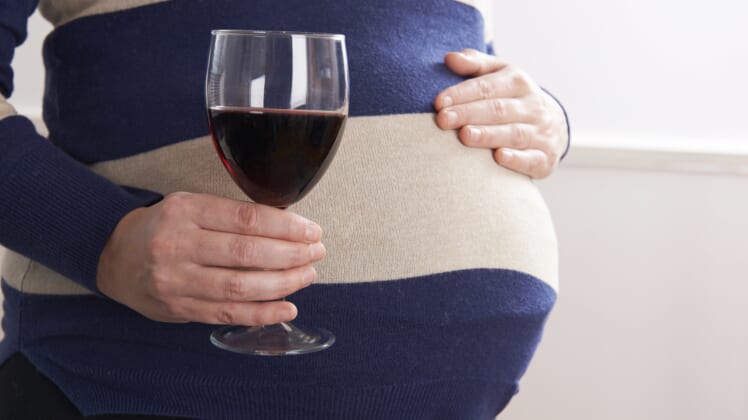
Experts know that alcohol during pregnancy is a problem. But they might not have expected it to be so prevalent.
According to a new study published in the Journal of the American Medical Association, more women may be drinking during pregnancy than experts once thought.
When an expecting mother drinks alcohol, she may risk giving her child fetal alcohol spectrum disorder (FASD).
According to the American Academy of Pediatrics, disorders on this spectrum can lead to “intellectual and neurodevelopmental disabilities,” and is actually the leading preventable cause of them.
For the new JAMA study, its conservative estimates are showing the prevalence as high as 5 per 100 children (or 5 percent). Current medical consensus is far lower—around 1 per 100, giving the new study a level of importance in the current pool of research.
Research shedding light
To get their data, the researchers started by studying over 6,600 children in the first grade and their parents or guardians.
The researchers conducted the study in both public and private schools in 4 areas, including the Rocky Mountain, Midwestern, Southeastern and Pacific Southwestern regions.
Then, researchers identified whether the children had FASD using 4 criteria often found in the disorder. For instance, physical features like a flat upper lip alerted them of a probable case.
Of the children studied, 222 were identified on the fetal alcohol spectrum. Using a conservative approach, this number could mean that the prevalence of FASD in children is between 1 and 5 percent.
Opposing views
While some reviewers are applauding Christina Chambers and her colleagues who authored this study, one voice has risen in opposition.
Susan Astley, director of the Fetal Alcohol Syndrome Diagnostic and Prevention Network, told CNN that she doesn’t have much regard for the study’s numbers.
“Screening for (fetal alcohol spectrum disorders) isn’t like screening for scoliosis. It’s difficult to … just start asking moms and dads about their drinking,” Astley said.
Another limitation may be the number of children who didn’t participate in the study. Of the more than 13,000 screened, nearly half did not take part in it.
Astley pointed out to CNN that many of those children could have had FASD, skewing the final results.
Still, the study’s authors stated that their “findings may represent more accurate U.S. prevalence estimates than previous studies.”
They did admit, however, that the data may not be able to be generalized across populations.
Drinking is a problem
To date, there is little to no research available on just how much alcohol could be considered safe during pregnancy. Still, women do continue the habit.
According to one survey from the Centers for Disease Control and Prevention (CDC), 1 out of 10 expectant women reported using alcohol.
That means that these women had consumed at least one drink in the past 30 days, an enormous risk if you ask the AAP. According to them, there is no amount of alcohol that expectant women should consume.
To combat this problem early, the CDC suggested in 2016 that women should not drink alcohol if they’re not using birth control.
They based their recommendation on a Vital Signs report which showed that an estimated 3 million women may be risking FASD in their children. The report also showed that 3 out of 4 women who want to get pregnant as soon as possible were still consuming alcohol.
“Every woman who is pregnant or trying to get pregnant – and her partner – want a healthy baby. But they may not be aware that drinking any alcohol at any stage of pregnancy can cause a range of disabilities for their child,” said Coleen Boyle, Ph.D.
Boyle is the director of the CDC’s National Center on Birth Defects and Developmental Disabilities.
It’s true that many women become pregnant unexpectedly, and they don’t usually know until 4 or 5 weeks in. During that time, they could be harming their babies unknowingly, risking a completely preventable problem.
Speaking of the CDC’s survey on expectant women, Boyle stated that it was “an important reminder that women should not drink any alcohol while pregnant. It’s just not worth the risk.”
